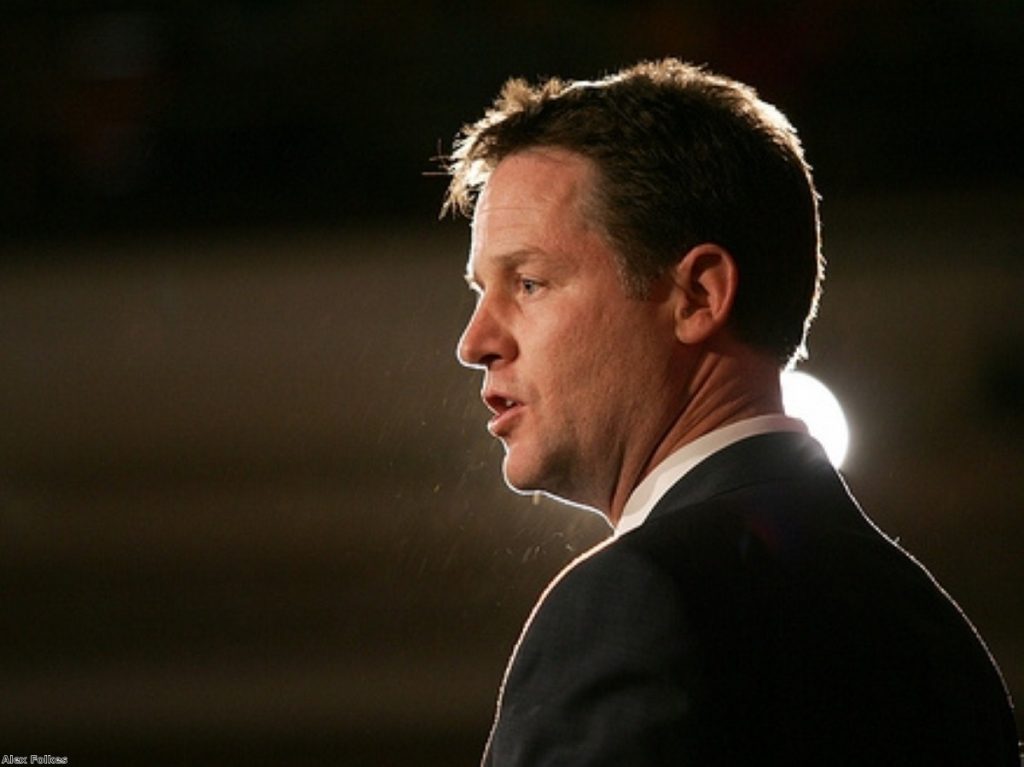Defiant Clegg begins fightback
The Liberal Democrats will become “even more formidable” in the future, Nick Clegg has insisted.
The junior coalition party suffered at the ballot box across England, Scotland and Wales in last week’s elections, their first major electoral test since entering power last year.
Mr Clegg admitted his party has taken a “hard knock” as he laid out his plans to move on in a major speech at the National Liberal Club in central London.


“In the next phase of the coalition, both partners will be able to be clearer in their identities, but equally clear about the need to support government and government policy,” he said.
Sketch: Clegg’s muscular liberalism needs toning up
“We will stand together, but not so closely that we stand in each other’s shadow. You will see a strong liberal identity in a strong coalition government. You might even call it muscular liberalism.”
The deputy prime minister had faced calls from a handful of disgruntled Lib Dem councillors to resign.
He faces a more real threat from energy and climate change secretary Chris Huhne, who has been at the forefront of dissent against the Conservatives’ approach to the rejected alternative vote referendum.
Mr Clegg said he relished the opportunity to be clearer about the Lib Dem role in government.
He made a start in his speech by pointing out some of the policy concessions made by the Lib Dems’ coalition partners.
“The Conservatives promised to replace Trident in this parliament, cut inheritance tax for the most wealthy, renegotiate fundamental elements of the Lisbon Treaty on social affairs, build more prisons and replace the Human Rights Act,” he added.
“None of these things have happened. And there is no shame in this. They haven’t happened because the Conservatives are not governing as a majority party. They are in a coalition, and a coalition requires compromise.”
Mr Clegg argued that the Lib Dems are “punching well above our weight” in terms of policy, pointing to BBC research showing 75% of the party’s manifesto is being implemented – compared to just 60% of the Tories’.
Contrasting the Conservatives’ poor reputation on managing the economy after Black Wednesday and Labour’s recent failure to prevent the 2008 financial crash, he argued the Lib Dems can be the only party in British politics which merge economic “competence with a conscience”.
“We are showing we have the mettle to take tough economic decisions, and the determination to break down the barriers to a fairer society,” the embattled Lib Dem leader concluded.
“Let me be candid – we have a lot of work to do. We took a hard knock last week. But even in these difficult times, one in seven people gave us their vote – and they want us to get on with the job. We will ensure that this is a more liberal nation by 2015.”

